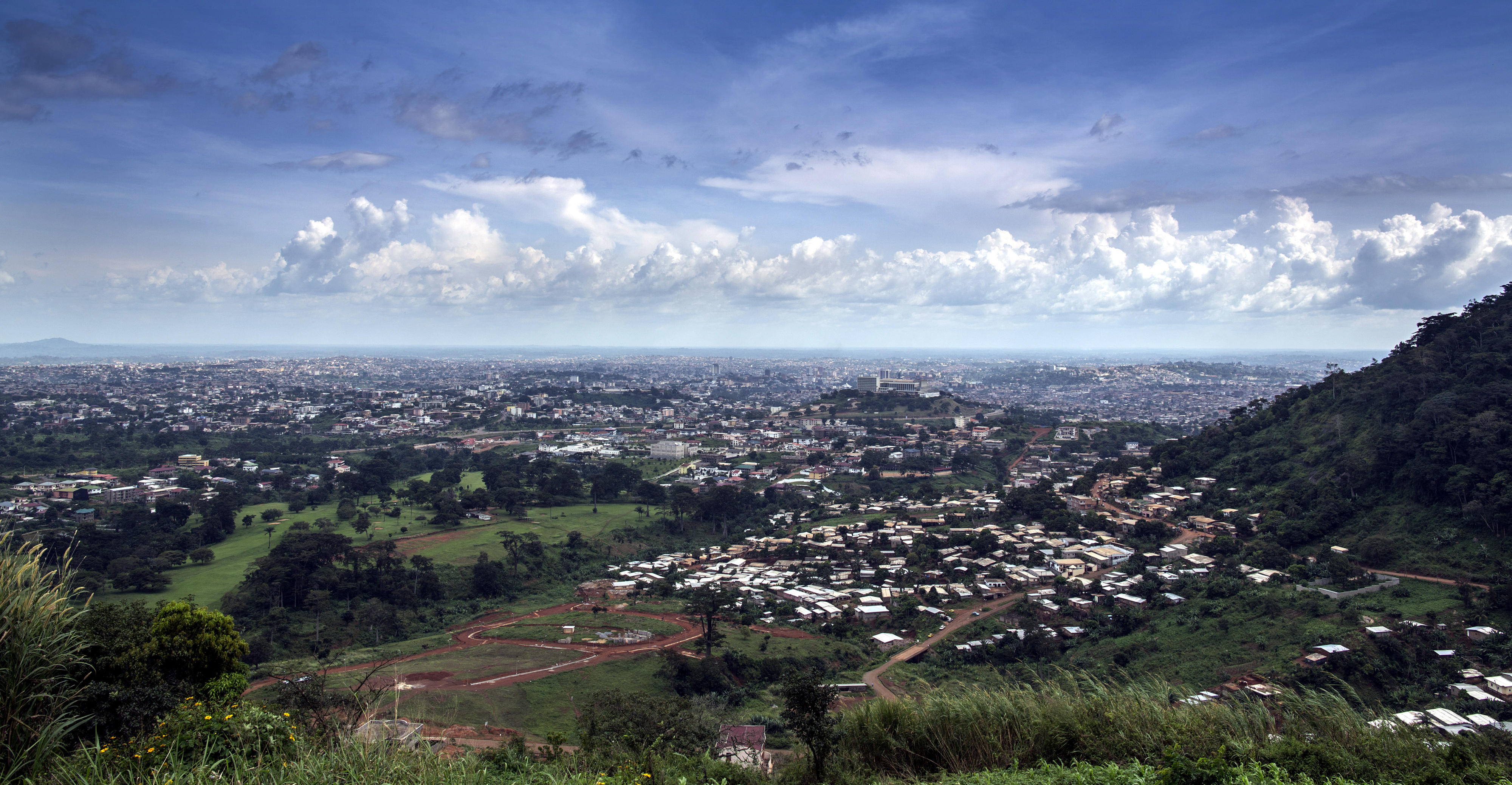View of Yaoundé, capital of Cameroon
Copyright© Thomas Imo/photothek
Background The heavy legacy of colonialism
Francophone Cameroon became independent in 1960. The people of British Cameroon had to decide in 1961 whether they wanted to belong to Cameroon or Nigeria. The northern part opted for becoming part of Nigeria, while the southern region formed a federal republic with francophone Cameroon.
Cameroon is a member of both the International Organisation of La Francophonie and of the Commonwealth; the official languages of the country are French and English. In 1972, the federal system was abolished and a unitary state with a central government was formed. However, the English-speaking Northwest and Southwest Regions retained administrative, financial, legal and education systems that were based on the British model.
Some 20 per cent of Cameroon's people live in these two regions. Many of them feel very much disadvantaged politically, economically, culturally and with regard to the justice, administration and education systems. When increasing numbers of French-speaking judges and teachers were sent to the English-speaking part of the country in 2016, the relevant professional associations called for protest rallies. The central government used force to squash the protests. As a result, the conflict escalated, leading to severe violent clashes between various separatist groups and government security forces.
Now criminal activities are playing an increased, and sometimes dominant, role in the separatist efforts. The parties to the conflict are using great brutality to force the people to support them. They are committing massive human rights violations (such as torture and arbitrary arrests and killings).
As at: 27/02/2024
